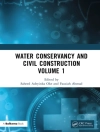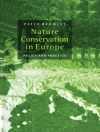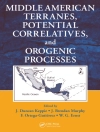This edited book is based on the accepted papers for presentation at the 1st Med GU Annual Meeting, Istanbul, 2021. With two parts spanning a large spectrum of environmental, geomorphological and geoarcheological topics and a third part on caves and karst, which includes research studies gathered on the occasion of the International Year of Caves and Karst (2021), this book presents a series of newest research studies that are nowadays relevant to Middle East, Mediterranean region, and Africa.
The book gives a general overview on current research, focusing on geoenvironmental issues and challenges in environmental management in the Middle East and Mediterranean region and surrounding areas. It offers a broad range of recent studies that discuss the latest advances in geomorphology, landslides, soil science, paleoclimate, and geoarcheology. It also shares insights on cave and karst studies including speleology, cave and karst explorations, geomorphology, hydrogeology, geoethics, prehistoric eras in karst, geotectonics, and the nexus between human activities and karst sustainability.
Daftar Isi
Section 1. Environmental Earth Sciences.- Section 2. Geomorphology, Landslides, Soil Science, Paleoclimate, Geoarchaeology.- Section 3. Caves and Karst, a special session on the occasion of the International Year of Caves and Karst (2021).
Tentang Penulis
Attila Ciner:
Attila Çiner is a sedimentology and Quaternary geology professor at the Eurasia Institute of Earth Sciences at Istanbul Technical University, Turkey. After graduating from the Middle East Technical University in Ankara (1985), he obtained his M.Sc. degree at the University of Toledo, USA (1988), and his Ph.D. at the University of Strasbourg, France (1992). He works on the tectono-sedimentary evolution of basins and Quaternary depositional systems such as moraines, fluvial terraces, alluvial fans, and deltas. He uses cosmogenic nuclides to date these deposits. He primarily focuses on the glacial deposits and landscapes and tries to understand paleoclimatic and paleoenvironmental changes since the Last Glacial Maximum. Lastly, he was part of the Turkish Antarctic Expedition.
Dr. Firoz Khan is an associate professor at the Department of Environmental Science and Management, North South University, since 2022 and a leader of the AEROSOL LAB (pollut Ants-h Ealth inte Racti On e Stimati On Lab). Before that, he taught Environmental Science and Geoinformatics for eight years in multiple countries, including Malaysia and China. His fields of expertise include but are not limited to air pollution/causes and effects, atmospheric chemistry, environmental chemistry, air pollution modeling, environmental toxicology, etc. He completed his education in Japan (Ph.D.), the UK (M.Sc.), and Bangladesh (B.Sc.). He is an author or the co-author of 110 peer-reviewed research articles published in many top-tiering journals. He engages with 20 research grants as a PI or Co PI received from national and international funding bodies in environmental research.
Amjad Kallel:Dr. Amjad Kallel is currently an associate professor of Environmental Geology in the Sfax National School of Engineers at the University of Sfax, Tunisia. He holds a B.Eng. in Georesources and Environment (1998) from the University of Sfax (Tunisia) and an M.Sc. degree and a Ph.D. degree in Georesources and Environment (2004) from Hokkaido University (Japan). He joined Venture Business Laboratory (VBL) at Akita University, Japan (2005–2006), as a researcher focusing on refining and recycling technologies for the recovery of rare elements from natural and secondary sources. On his return to Tunisia, he worked at the University of Gabes from 2006 to 2011, where he contributed to the elaboration of teaching programs at the Higher Institute of Water Sciences and Technologies of Gabes. Since 2011, he has joined the Sfax National School of Engineers. There, he has also been involved in various research projects related to Environmental Geology and Environmental Geotechnics. Dr. Kallel has co-organized many prestigious workshops, seminars, and international conferences. In 2016, Dr. Kallel joined the Arabian Journal of Geosciences (Springer) and the Euro-Mediterranean Journal for Environmental Integration (Springer) as Chief Editor and Managing Editor, respectively.
Jesus Rodrigo-Comino, Ph.D., D.Eng.
Jesús Rodrigo-Comino, a graduate in Geography, currently works as an assistant professor at the University of Granada and was included for the second time in the World’s Top 2% Scientists ranking by Stanford University. He got a Master in Territorial Planning and Geographic Information Systems (2013) at the University of Málaga/Granada, whose final work was divided into 3 national publications and a monograph. During his predoc stage, he obtained three scholarships for doctoral studies: DAAD (German Academic Exchange Service), La Caixa Foundation, and FPU (Ministry of Education, Spain). His research career consists of four complete monographs (Nova, Springer, etc.), some edited books (Elsevier, CRC, Nova), and 200 indexed publications in Scopus and Wo S, leading international collaborations with research teams over the world.
Mario Parise:Mario Parise graduated with honors in Geology at the Faculty of Sciences of the University Federico II, Naples, Italy. Since 1990, he has developed research mainly into the geological and geomorphological analysis of slope movements, namely with identification of the areas susceptible to different types of slope movement (from debris flows, to deep-seated gravitational slope deformations, to general mass wasting processes) by means of stereoscopic interpretations of aerial photographs and field surveys. Particular focus is given to multi-temporal analysis, aimed at understanding the likely evolution of slopes, even in relationship with anthropogenic activities, and/or as a consequence of specific triggering events (rainfall, earthquakes, etc.). For several sites in southern Italy, he has outlined a framework of the influence of weathering in the predisposition of slope movements. He has also contributed to the analysis of rapid landslides (debris avalanches, rock avalanches) in different geological settings in Italy and abroad andto studying the occurrence of debris flows and erosional processes in areas recently affected by wildfires. He has studied various landslides in Italy and the USA, and within this research activity, he has developed an expertise in the recognition and investigation of slope failures, production of thematic maps, also collaborating in the interpretation of monitoring data and in slope stability analyses. In addition, since 2002 he is working in the field of karst research, focusing on the evaluation of the natural and anthropogenic hazards occurring in karst territories, with particular regard to sinkholes and to underground instability and failures.
Rahim Barzegar:Dr. Rahim Barzegar is Postdoctoral Fellow in the Department of Bioresource Engineering at Mc Gill University in Canada. Before joining Mc Gill in 2019, he obtained a Ph.D. and M.Sc. in Hydrogeology and a B.Sc. in Geology from the University of Tabriz, Iran. He has worked as Postdoctoral Researcherin joint projects at the University of Tabriz in Iran and Wilfrid Laurier University in Canada. His main research focuses on the exploration of new methods in machine learning- and deep learning-based hydrological modeling. His other research activities also revolve around time series analysis, water quality assessment, water resources management, and climate change impacts on water resources. Dr. Barzegar also acts as Associate Editor for the Arabian Journal of Geosciences (Springer publication), Earth Science Informatics journal (Springer publication), and Communications Earth & Environment (Nature publication) and Topic Editor for Water Journal (MDPI).
Zeynal Abiddin Ergüler:Prof. Dr. Zeynal Abiddin Erguler is Full Professor at the geological engineering department at Kutahya Dumlupinar University (Turkey). Dr. Erguler holds a B.Sc. (1998), an M.Sc. (2001), and a Ph.D. degree (2007) in Geological Engineering from Hacettepe University (Turkey). His research interests mainly focus on rock mechanics, engineering geology, environmental geology, and soil mechanics. His current investigation is to understand and model the thermo-hydro-mechanical behavior of shale rocks in the area of shale gas production. In addition to performing many types of research and industry-funded projects, he has also taught and supervised undergraduate and graduate students. In 2017, Dr. Erguler joined the Arabian Journal of Geosciences (AJGS) as Editor responsible for evaluating submissions in the fields of rock mechanics, engineering geology, environmental geology, and soil mechanics.
Nabil Khélifi:I undertook fellowships at the System for Analysis, Research and Training (START) in 2005 and the German Academic Exchange Service (DAAD), as part of my Ph.D. studies in Marine Geosciences at the University of Kiel in Germany (2006 to 2010). □ After my Ph.D., I received a research grant from the German Science Foundation (DFG) to conduct research projects at the GEOMAR Ocean Research Centre in Kiel on oceanography and climate reconstructions in the North Atlantic and the Mediterranean (2010 to 2013). My research findings have been presented at international conferences and published in esteemed journals. □ From 2009 to 2013, I co-organized with my Kiel colleagues two workshops on the Pliocene climate at the University of Bordeaux, France (2009), and the University of Bristol, UK (2013), funded by the European Science Foundation (ESF). In late 2013, I received the Swiss Government Excellence Scholarship to pursue my postdoctoral research career. □ In 2014, I joined Springer (now Springer Nature) in Heidelberg, Germany, as Editor and was promoted to Senior Editor in 2017 responsible for developing their publishing program in the Middle East and Africa, which consists of managing 20 journals and 2 book series. □ From 2015 to 2022, I was active in educational seminars for authors, reviewers, and editors to help improve publication output and quality. In 2015, I was also Visiting Lecturer at King Saud University, KSA, and University of Sfax, Tunisia, where I gave lectures on publishing techniques. □ Recently, I launched two international conferences (more details at www.emcei.net and www.medgu.org) aiming at promoting two journals that I was managing at Springer. □ In 2016, I was awarded the Africa Green Future Leadership Award for my promotion of publications from Africa. In 2020, I received the Saudi Society for Geosciences Award.
Imran Ali:Prof. Imran Ali, Ph.D., FRSC, C Chem, London (UK), Highly Cited Researcher, Clarivate, USA, and with 11 Global ranks in Analytical Chemistry, as per the Stanford University, USA (Global list of top 2% scientists); is World-Recognized Academician and Researcher. He completed his Ph.D. at the Indian Institute of Technology Roorkee, Roorkee, India. Prof. Ali is known globally due to his great contribution to pharmaceutical analysis by chromatography and capillary electrophoresis, the development of anticancer drugs, nanotechnology for water treatment, and water splitting for hydrogen green fuel generation. He has published more than 500 papers in reputed journals including papers in Nature and Chemical Reviews of more than 72 impact factors. He has also written six books published by Marcel Dekker, Inc., USA; Taylor & Francis, USA; John Wiley & Sons, USA; John Wiley & Sons, UK; Elsevier, The Netherlands; and Springer, Germany. His total citation is 35, 500 with an h-index of 102 and an i10-index of 323. He is Member of various scientific societies globally. He is Editor-in-Chief of 02, Editor of 03, and Associate Editor of 06 journals and on the editorial board of 40 journals.












